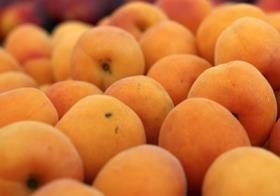
New research from the University of St Andrews in the UK has suggested eating more fruit and vegetables can make you more attractive.
The study, published earlier this week, demonstrated that eating greater levels of carotenoid pigments – found in a range of fresh produce – can change skin colour to a more ‘golden’ shade within just six weeks.
Researchers tracked 35 university students over six weeks, monitoring changes in their diet and skin tone, as well as the reaction of other people to the subjects’ colour.
Subjects who increased their fruit and vegetable intake showed a darkened skin colour, which the researchers describe as a “desired golden skin tone”. The change required as little as two extra servings of produce per day.
“People who eat more fruit and vegetables have a ‘golden’ skin tone that looks healthy and attractive,” said University of St Andrews researcher Ross Whitehead.
“Our latest research finds that even small improvements in diet produces visible benefits to skin colour. We were very surprised by how quick the changes were.”
Whitehead hopes the appeal to consumers’ vanity will gain more traction than current campaigns to increase fruit and vegetable consumption based on health alone, and the team is carrying out trials in Scotland to see if people can be persuaded to change their diets if they can see the results in a short timeframe.
“Knowing you are going to look more attractive in a few weeks may be more persuasive than the promise of health benefits later in life,” he stated.
Fruit containing high levels of carotenoids include mangoes, apricots and rockmelons (cantaloupe), while vegetables with high levels include carrots, sweet potatoes, pumpkins, kale and spinach, according to Dr Hazel MacTavish-West of Australian research consultancy MacTavish:West.
The study, ‘Appealing to Vanity: Could Potential Appearance Improvement Motivate Fruit and Vegetable Consumption?’ is published in the American Journal of Public Health, and was funded by the UK’s Economic and Social Research Council (ESRC) and Unilever Research & Development USA.



